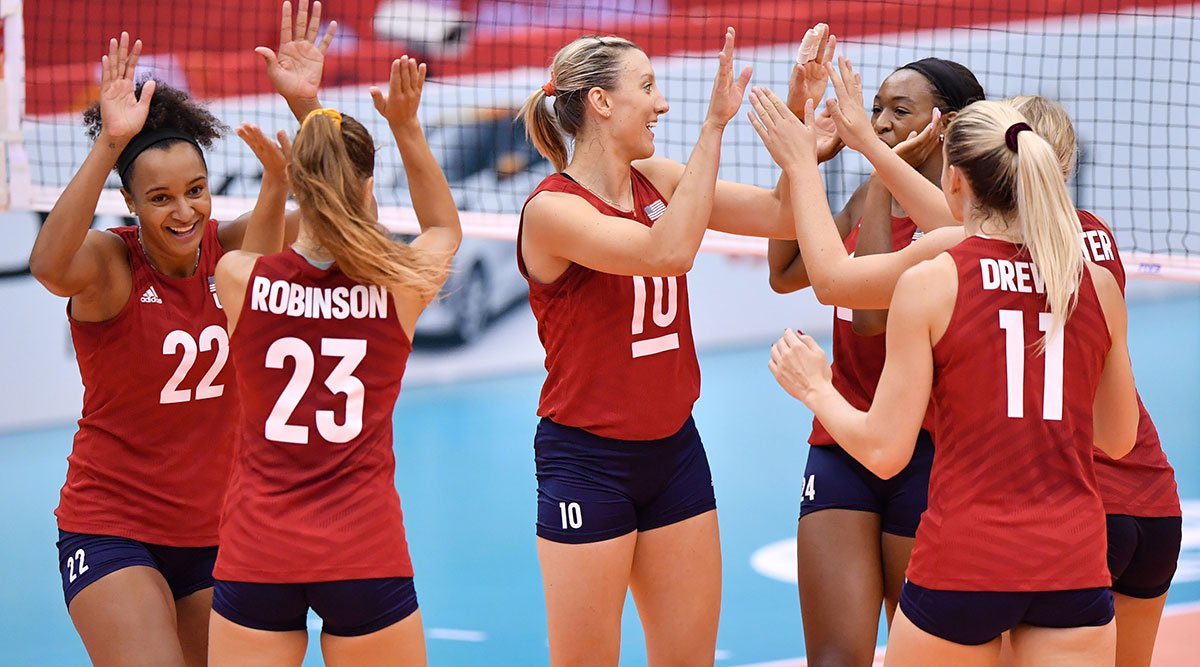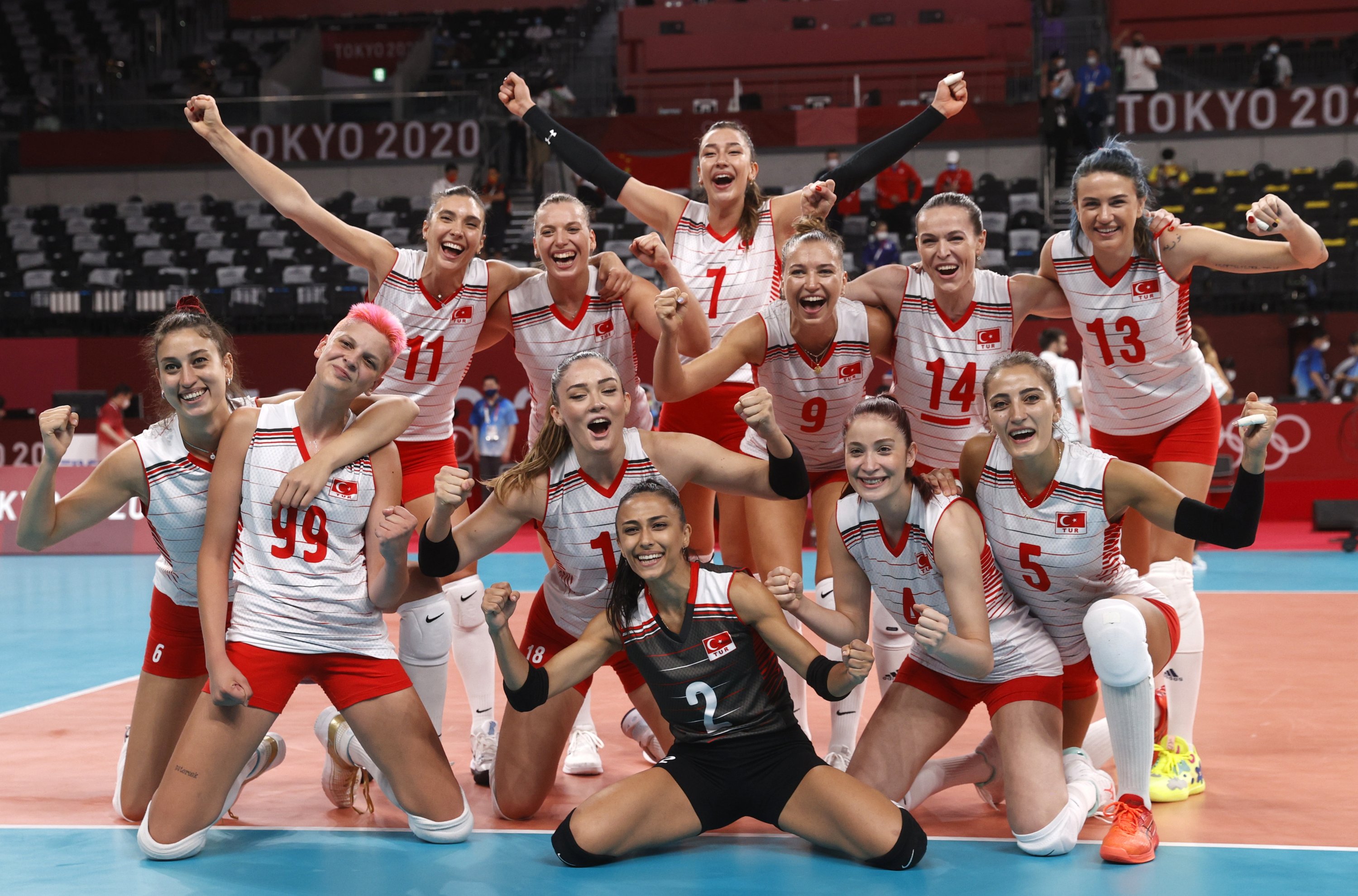Notable Players and Teams

The Olympic Games have witnessed the rise of legendary women’s volleyball players who have left an indelible mark on the sport. Their exceptional skills, strategic brilliance, and unwavering determination have captivated audiences worldwide, inspiring generations of athletes.
The Legacy of Dominant Players
The history of women’s volleyball is replete with extraordinary players who have shaped the sport’s evolution. These athletes have not only excelled on the court but have also transcended their roles as players to become icons and role models.
- Regla Torres (Cuba): A dominant force in the 1990s, Torres was known for her exceptional power and precision. She was a key player in Cuba’s golden era, leading the team to two Olympic gold medals (1992, 1996) and four world championships. Her powerful spikes and exceptional blocking ability made her a formidable opponent, and her leadership qualities inspired her teammates to achieve greatness.
- Misty May-Treanor (USA): A two-time Olympic gold medalist (2004, 2008) and three-time world champion, May-Treanor is considered one of the greatest beach volleyball players of all time. She dominated the sport alongside her partner Kerri Walsh Jennings, forming an unstoppable duo that revolutionized the game with their athleticism, power, and strategic brilliance. Their exceptional teamwork and unwavering focus made them a force to be reckoned with, inspiring a new generation of beach volleyball players.
- Kim Yeon-koung (South Korea): Renowned for her explosive power and remarkable versatility, Kim Yeon-koung is one of the most influential players in the world. She has led South Korea to numerous victories, including a silver medal at the 2012 London Olympics. Her ability to dominate both offensively and defensively has earned her the title of “Queen of the Court,” and her impact on the sport has been profound.
Dominant Teams and Strategies
The success of women’s volleyball teams is often attributed to their strategic brilliance, exceptional teamwork, and the individual brilliance of their players. Teams have employed a variety of strategies to gain an edge over their opponents, leading to a dynamic and captivating game.
- Brazil: Known for their aggressive style of play and relentless attacks, Brazil has consistently been a force to be reckoned with in international volleyball. Their dominant performances in the 2000s and 2010s, including three Olympic gold medals (2008, 2012, 2016), are a testament to their exceptional talent and tactical prowess. Their “jogo de ataque” (attacking game) is characterized by powerful spikes, strategic blocking, and a relentless pursuit of points.
- USA: The USA team has established itself as a powerhouse in women’s volleyball, boasting a strong tradition of success. Their dominance in the 2010s, including Olympic gold medals in 2012 and 2020, is a testament to their athleticism, tactical flexibility, and exceptional teamwork. They are known for their balanced offensive and defensive strategies, employing a variety of plays to outsmart their opponents.
- China: A perennial powerhouse in women’s volleyball, China has consistently been a top contender in international competitions. Their success is attributed to their disciplined play, strong defensive strategies, and a commitment to teamwork. Their “blocking wall” is renowned for its effectiveness, often frustrating opponents and disrupting their offensive flow.
Rivalries and Dynamics
The competitive nature of women’s volleyball has fostered intense rivalries between teams and players. These rivalries have fueled the sport’s excitement, creating unforgettable moments and captivating audiences worldwide.
- USA vs. Brazil: This rivalry has been a cornerstone of women’s volleyball for decades. The two teams have consistently met in the finals of major tournaments, showcasing their exceptional talent and strategic brilliance. Their matches are often characterized by intense battles, powerful attacks, and strategic maneuvers, leaving fans on the edge of their seats.
- China vs. Japan: The rivalry between China and Japan is rooted in their historical dominance in Asian volleyball. Their matches are often filled with tension and strategic intrigue, as both teams strive to gain an edge over the other. The rivalry has intensified in recent years, with both teams vying for supremacy in the region and on the global stage.
The Impact of Women’s Volleyball on Society: Olympic Womens Volleyball

Women’s volleyball has not only become a beloved sport, but it has also had a profound impact on society, particularly in empowering women and promoting gender equality. This impact is evident in the way the sport has broken down barriers, inspired generations, and influenced cultural perceptions.
Empowering Women in Sport and Society, Olympic womens volleyball
Women’s volleyball has played a pivotal role in empowering women in both the sporting arena and broader society. By showcasing their athleticism, skill, and determination, female volleyball players have challenged traditional gender roles and inspired countless young girls to pursue their dreams. The sport has provided a platform for women to demonstrate their strength, resilience, and leadership qualities, proving that they can excel in any field, including sports.
The Olympics’ Role in Promoting Gender Equality and Female Athleticism
The Olympic Games have been instrumental in promoting gender equality and celebrating female athleticism. The inclusion of women’s volleyball in the Olympics has provided a global stage for female athletes to showcase their talents and inspire audiences worldwide. The Games have also helped to break down barriers and challenge stereotypes, demonstrating that women are capable of achieving greatness in sports just like men.
Inspiring Young Girls and Women
Women’s volleyball has inspired countless young girls and women to pursue their athletic dreams and strive for excellence. The success stories of female volleyball players, both on and off the court, have provided role models and examples of perseverance, teamwork, and leadership. The sport has also encouraged girls to participate in physical activity, promoting healthy lifestyles and fostering a sense of community.
The Social and Cultural Significance of Women’s Volleyball
Women’s volleyball holds significant social and cultural importance in various countries and regions. In some cultures, the sport has been instrumental in breaking down traditional gender barriers and empowering women to participate in public life. In others, it has become a source of national pride and a symbol of female empowerment. The sport has also contributed to fostering a sense of community and promoting cultural exchange through international competitions.
Olympic womens volleyball – Olympic women’s volleyball, a spectacle of athleticism and strategy, has seen its share of legends rise and fall. Among them, a name that echoes through the halls of the sport is Karch Kiraly , a titan whose influence on the game remains indelible.
His legacy, however, extends beyond the court, shaping the future of Olympic women’s volleyball with his coaching prowess, inspiring generations of players to reach for the highest peaks of athletic achievement.
The Olympic women’s volleyball court is a battlefield of athleticism and strategy, where each point is a hard-fought victory. The players’ movements are a blur of controlled chaos, their jumps a testament to their dedication, their dives a desperate plea for victory.
But even amidst the adrenaline rush, there’s a quiet moment of respite when a player takes a break on the sidelines, sinking into a bucket racing seat chair for a moment of calm before the next rally begins. These chairs, designed for comfort and support, offer a momentary escape from the intensity of the game, a chance to gather strength for the next volley.